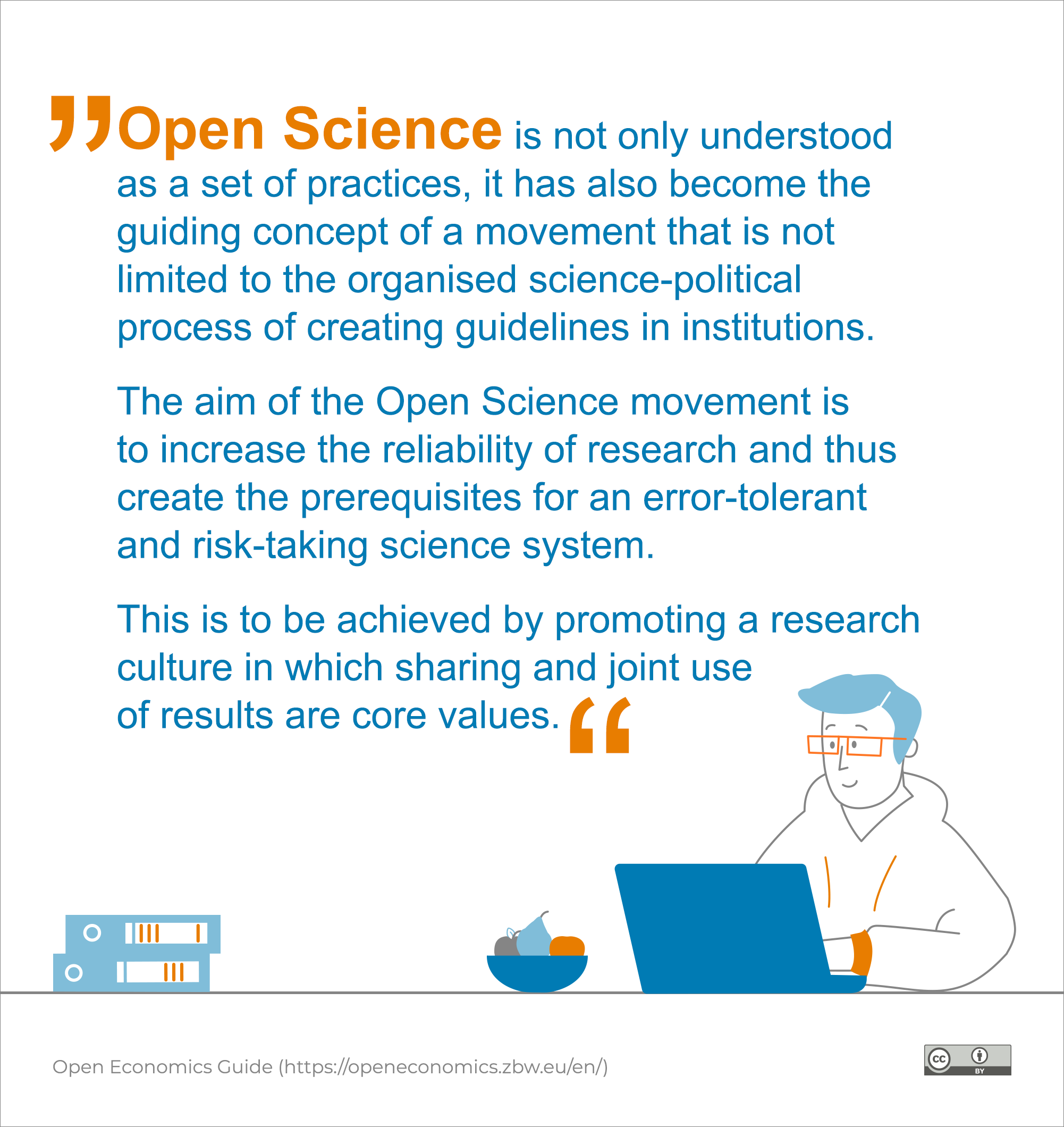Open Science as a Toolbox for Implementing Good Scientific Practice
National and international organisations establish guidelines for research so that research serves overarching societal goals about which there is a broad consensus and which aren't determined by the enforcement of particular (for instance personal, commercial or party political) interests. Such guidelines describe fundamental rules and modes of behaviour that are intended to ensure the integrity of research and thereby enhance trust in the science system. The principles and responsibilities outlined in the Singapore Statement on Research Integrity constitute the first international initiative to promote unified policies, guidelines, and codes of conduct. At the European level, the European Code of Conduct for Research Integrity formulates an overview of recommended research practices. Various International Codes of Conduct and Research Integrity Reports are listed on the website of the Ombuds Committee for Scientific Integrity in Germany. The German Research Foundation (Deutsche Forschungsgemeinschaft / DFG) also publishes information and guidelines for safeguarding good research practice. A core requirement of many guidelines is the reproducibility of research results. For this purpose, data and analysis methods must be documented in a comprehensible manner.
In the field of economics, the German Economic Association (Verein für Socialpolitik / VfS) published recommendations and guidelines for ex-post impact analyses (German) in 2014. The goal is to support the integrity of evidence-based political-economic advice. In addition, the VfS's Code of Ethics formulates rules of good scientific practice. They for example require transparency of assumptions, reproducibility of empirical results, disclosure of conflicts of interest and openness of the research process for unforeseen results in the case of contract research.
The German Academic Association of Business Research (VHB) has published Good Professional Practices (German). Among other things, they address conflicts of interest, reviewer activities and the good handling of data (German) as well as the documentation of the research process. This includes the disclosure of research data and related documentation, software and source codes.
Open practices, such as publishing in Open Access and making research data available as Open Data, play an increasing role in the implementation of such guidelines. Open Science can be understood as a toolbox of digital practices that make assumptions, processes and results of research transparent, reproducible and reusable and facilitate their open communication. Many of these practices can serve directly to implement guidelines for scientific practice. The guidelines are not congruent across the various disciplines and institutions, nor are they identical to all practices that different researchers and institutions include under the term Open Science. Some actors in the research system may label some practices as “Open Science”, while others do not accept them as a cornerstone of research integrity (for instance, the idea of Open Peer Review is contested).

Open Science is not only understood as a set of practices, it has also become the guiding concept of a movement that is not limited to the organised science-political process of creating guidelines in institutions. The aim of the Open Science movement is to increase the reliability of research and thus create the prerequisites for an error-tolerant and risk-taking science system. This is to be achieved by promoting a research culture in which sharing and joint use of results are core values.